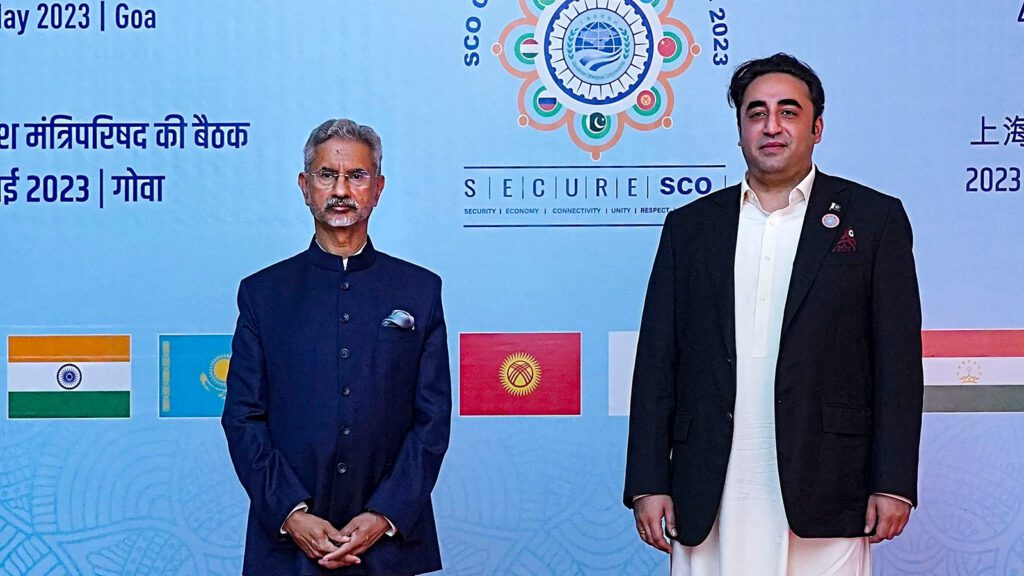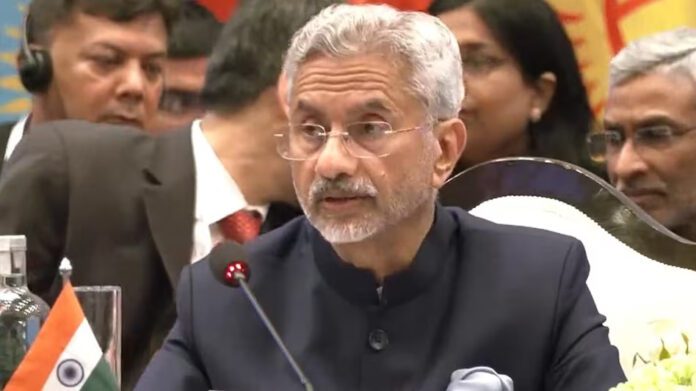On May 5 at Goa, India’s External Affairs Minister Dr S. Jaishankar, unleashed a vitriolic attack in response to remarks his Pakistani counterpart Bilawal Zardari had made during and off the SCO meeting. His command of the English language is excellent but the occasion – being a host of the SCO Meeting – only lessened Jaishankar’s personal stature. He came across as a small man oozing arrogance, a host who trampled some of the globally practiced norms.
Dr. S. Jaishankar boasts a brilliant diplomatic career including four ambassadorial postings (a rare phenomenon), and the coveted post of the foreign secretary. No surprise PM Narendra Modi picked up S. Jaishankar as his foreign minister.
Jaishankar’s candor on national priorities is also adorable. In a world of more naked self-interest, nations will do what they have to do with less pretense, Jashankar says in his book The India Way (p 26). He preaches a purely transactional logic in India’s relations with a world that “everyone is already doing, where there are no allies or friends, but only “frenemies” (p. 39):
To justify deception and pragmatism couched in nationalism Jaishankar also draws on the Indian epic Mahabharata, one of whose characters deploy deception for survival and harnessing opponents. In the Mahabharata War, Arjuna was a key warrior and killed many warriors including his own elder brother Karna unknowingly and his grandfather Bhishma. Before the beginning of the war, his mentor, Krishna, gave him the supreme knowledge of the Bhagavad Gita to overcome his moral dilemmas.
The expletives that Jaishankar used for Zardari and Pakistan made him look like a political activist rather than an experienced and eloquent foreign minister of a big power.
Even to a person like myself – thoroughly impressed with Jaishankar’s record as a diplomat – his outburst amounted to defiance of diplomatic norms and civilizational etiquette.
Why did he invite Pakistan at all if he believes that “perpetrators of terrorism cannot sit with victims of terrorism?”
“As a promoter, justifier and spokesperson of a terrorism industry which is the mainstay of Pakistan, his positions were called out and countered including at the SCO meeting itself,” Mr. Jaishankar said at a press conference as if he were in a debating contest with a foreign minister who risked his political capital by agreeing to attend in person.
Each of Jaishankar’s sentences reeked of dismissive contempt for Pakistan – to say the least and it begged the basic question as to if their hatred or dislike for Pakistan is so deep-seated, why did the Indian delegation choose to sit with the Pakistani “terror-apologists” under the same roof?
How could Indians pretend innocence when proxy terrorists are pricking Pakistan here and there – almost every day?
Pakistanis also do feel the same way over this sponsored terrorism their country has been facing since long before the Indian in-service spy Kulboshan Jadhav was caught in March 2016.
There is hardly any plausible explanation for the systematic terror campaign targeting Pakistan’s security forces other than to conclude it is being driven externally – very much in synch with the proposals that National Security Advisor Ajit Doval and several other Indian experts have been peddling since the Mumbai terror attacks in November 2009. Most of the recommendations from security dialogues centred on one idea; hit Pakistan inside and exploit the ethnic, sectarian, sub-nationalist fault-lines. This is what Doval and a dozen other experts had also advised at a Group Discussion that India Today magazine had organized back in November 2009.https://www.indiatoday.in/magazine/cover-story/story/20091109-the-big-threats-741203-2009-10-29)
At the same event, G. Parthasarathy, a former High Commissioner to Pakistan, proposed that “covert and overt actions need to be essential ingredients of India’s policy. India must exploit fault lines within Pakistan.” Pakistan should be made to realise that it will have to pay a price for terrorist acts, not just a diplomatic price, but also a price otherwise,
Once he became the NSA, Doval minced no words in peddling the “teach Pakistan a lesson with its own medicine” mantra – clearly pointing to the use of proxy terrorist groups to destabilise Pakistan (deliver pricks wherever possible) and project the country through the terrorist lens.
Dr.Amarjit Singh, a regular writer at Indian Defense Review, made more less the same proposal:
“So, short of an invasion of Pakistan, an Indian proxy war inside Pakistan must be expanded. Whereas a proxy war by Pakistan in two Indian provinces merely affects less than 10% of all Indian provinces, a proxy war by India in two Pakistani provinces can affect 40% of Pakistan. By its sheer size, Pakistani resilience can be less, and Pakistani response to Indian proxy wars can be less effective,” Singh wrote in in December 2014 ( How to Make Proxy War Succeed in Baluchistan – http://www.indiandefencereview.com/news/how-to-make-proxy-war-succeed-in-baluchistan/)
No surprise also, that back in 2014/15, India issued a visa to Switzerland-based Brahamdagh Bugti within 24 hours for a tour of India. Bugti ended up spending nearly four months, mostly with BJP cadres at seminars and consultations, accompanied by the controversial writer late Tariq Fateh , who had been assigned to write a book “India not My Enemy”
Back in 2013, the British historian William offered an interesting perspective on the Indo-Pak proxy conflict in his Brookings essay, A Deadly Triangle: Afghanistan, Pakistan and India.
“The hostility between India and Pakistan lies at the heart of the current war in Afghanistan …. our troops are now caught up in a complex war shaped by two pre-existing and overlapping conflicts: one local and internal, the other regional … Beyond this indigenous conflict looms the much more dangerous hostility between the two regional powers—both armed with nuclear weapons: India and Pakistan.”
Would not be out of place to recall a Hindustan Times report (Jan-Feb 2014) on the alleged Indian role in Balochistan as well as the revelation last year that former Indian army chief General V K Singh had created a Technical Services Division (TSD) for covert operations in Pakistan. This report chronicled this venture and quoted a former TSD officer as saying: “Our main task was to combat the rising trend of state-sponsored terrorism by the ISI and we had developed contacts across the Line of Control in a bid to infiltrate Hafiz Saeed’s inner circle.” Given the history of mutual mistrust, hostility and cross-border covert operations between Islamabad and New Delhi, one can safely assume that General Singh’s TSD reflects only a small aspect of India’s possible involvement in Pakistan. If the CIA had been running alleged espionage networks through private security contractors (such as Raymond Davis), why wouldn’t India follow suit to map, profile and counter India-focused groups? Also, why wouldn’t Afghan and Indian intelligence prick Pakistan where it hurts the most if they believe the ISI has been hurting them since the late 1980s?

Lastly, as pointed out by Bilawal Zardari in one of his interviews, India still owes Pakistan an explanation as to what Kulbushan Jadhav —a serving Indian navy commander caught and sentenced to death for espionage and subversive activities — was doing in Pakistan with a Muslim name Passport? How closely was RAW coordinating with the Afghan National Directorate of Services (NDS) – under President Karzai and Ghani?
Wasn’t Lateefullah Mehsud, an aide to TTP’s supremo Hakimullah Mehsud, wrested by the US Marines from the NDS and handed over to Pakistan? Lateefullah had reportedly been in Kabul for some business with the NDS under Amrullah Saleh. What business? Proxy terrorism? Open to guessing indeed.
Sadly, because of Pakistan’s own baggage and tactical mistakes, no one abroad tends to look at this i.e. the reported Indian and Afghan intelligence collusion for pushing proxy terrorism in Pakistan. Outsiders never bothered to look into splintering of TTP into multiple terror franchises. Neither has anyone been able to explain whether a rag-tag band called TTP could fathom taking over the state of Pakistan.




